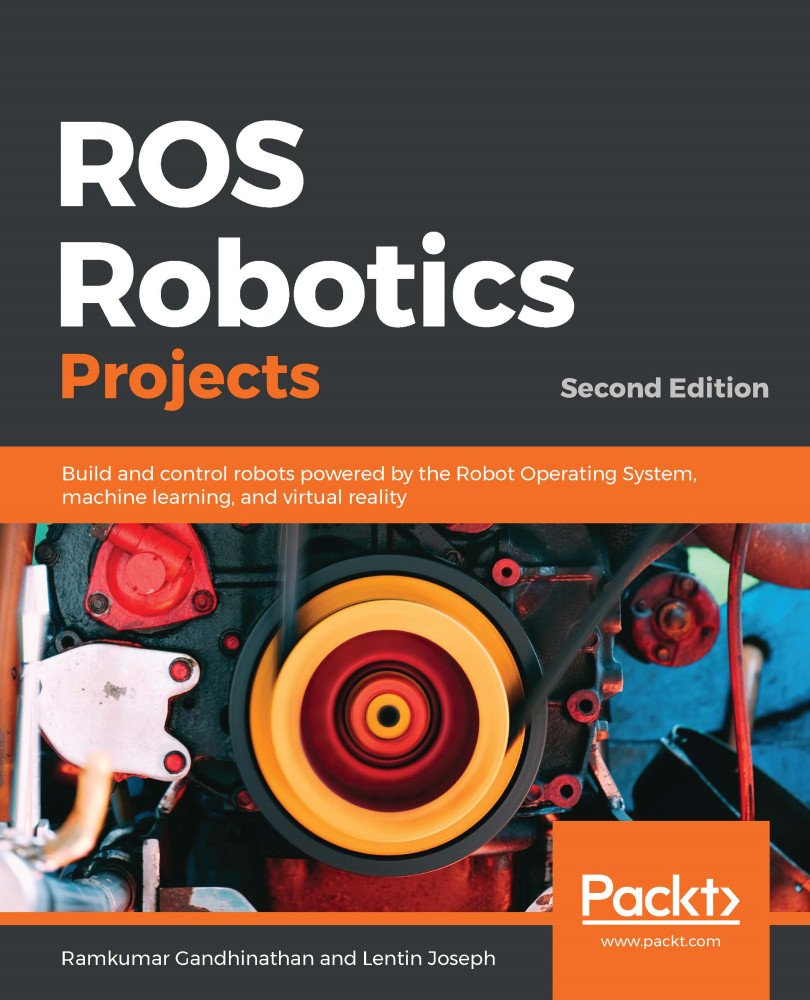Before we get into setting up ROS on these compute boards, let's try to understand the two most commonly used Linux distributions by the community—Debian and Ubuntu.
As you know, the projects in this book target ROS installed on top of Ubuntu. So, you should be familiar with Ubuntu by now. But how different is Debian? Not much—you simply need to know that Ubuntu is actually derived from Debian. Debian is one of the oldest OSes based on Linux kernels and acts as a base for most of the newer Linux distributions. Ubuntu was released by a private firm called Canonical who intended to produce an easy to use Linux distribution for daily use. The following diagram explains how Ubuntu is derived from Debian:

Some of the notable differences between both is in terms of software packages, ease of use or flexibility, stability...

































































